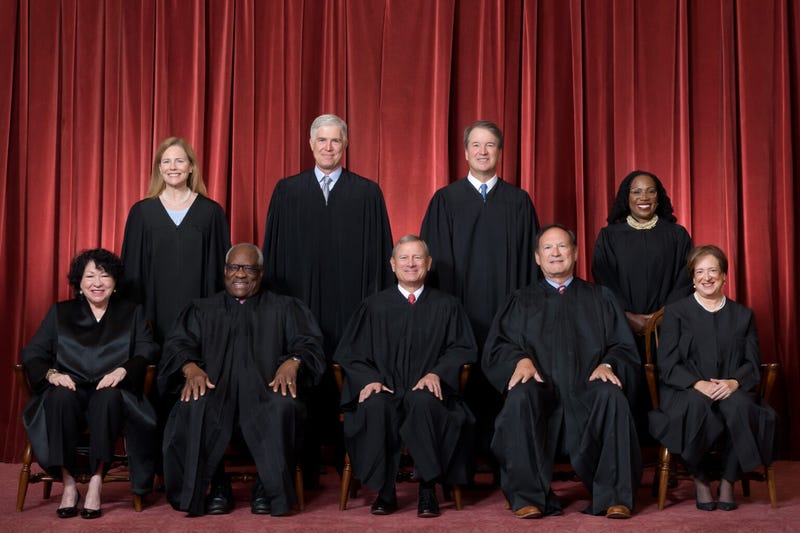
As Texas Republicans push forward with a controversial mid-decade redistricting plan, many are asking: Can they really do this?
The short answer: Yes - and the U.S. Supreme Court says so.
Back in 2019, the high court ruled in a landmark case, Rucho v. Common Cause, that federal courts have no role in deciding whether partisan gerrymandering is too extreme. The justices declared it a “political question,” not a legal one, effectively telling voters that it’s up to individual states - and their own courts or legislatures - to handle disputes over how maps are drawn.
That decision has had a profound ripple effect, paving the way for what experts now call a “redistricting arms race” playing out across the country - Texas included.
Mid-decade mapmaking? Nothing stopping it.
Traditionally, political districts are redrawn once every 10 years after the U.S. Census. But this year, Texas lawmakers are doing something unusual: redrawing the congressional map just four years after the last one, and well before the next census.
While that might seem out of bounds, there’s nothing in the U.S. Constitution that prevents a state from redistricting more frequently. And thanks to the Rucho ruling, there’s no federal watchdog to cry foul if the new lines are drawn purely to benefit one party.
Gov. Greg Abbott and Republican leaders say the redistricting effort reflects demographic changes and voting trends since 2020. Critics say it’s a blatant power grab designed to lock in more Republican congressional seats ahead of the 2026 midterms - potentially flipping up to five Democratic-held districts.
Why courts won’t intervene
In the Rucho case, the Supreme Court heard challenges from voters in North Carolina and Maryland, where lawmakers had drawn maps that heavily favored their own parties. The Court acknowledged the maps were skewed - but ruled 5-4 that federal courts have no standard to decide when partisan redistricting goes too far.
Chief Justice John Roberts wrote, “Excessive partisanship in districting leads to results that reasonably seem unjust,” but said it’s “not for the federal courts to decide.” He urged voters to seek change through state laws, constitutional amendments, or ballot initiatives.
Justice Elena Kagan, writing in dissent, said the decision “abandon[ed] the Court’s duty to declare the law” and warned it would embolden political manipulation nationwide.
In Texas, the decision means federal judges are off the table, even if voters believe the process is rigged.
States striking back with their own maps
The redistricting fight in Texas isn’t happening in a vacuum. In response to what they view as Republican overreach, Democratic-led states like California, New York, and Illinois are threatening to redraw their own maps in retaliation - potentially canceling out gains made in GOP-controlled states.
The result? A nationwide map war, with each party using the Rucho ruling to fortify its own congressional strongholds, rather than compete on neutral ground.
The Texas standoff continues
In Austin, Democrats in the Texas House have fled the state - again - this time to Illinois, in an effort to deny Republicans the quorum needed to pass the new maps. The House has now issued civil arrest warrants for the missing lawmakers, though they remain out of reach as long as they stay outside Texas borders.
Republican leaders say they’ll wait as long as it takes, and Gov. Abbott has not ruled out calling additional special sessions if necessary.
What’s clear is this: without federal oversight, redistricting has become a high-stakes, winner-takes-all political weapon - and Texas is leading the charge.
Stay with KRLD for continuing coverage of this developing story.
LISTEN on the Audacy App
Tell your Smart Speaker to "PLAY 1080 KRLD"
Sign Up to receive our KRLD Insider Newsletter for more news
Follow us on Facebook | Twitter | Instagram | YouTube
